IEEE International Conference on Space Mission Challenges for Information Technology / Space Computing Conference (SMC-IT/SCC 2025)
The International Conference on Space Mission Challenges for Information Technology (SMC-IT) and the Space Computing Conference (SCC) gather system designers, engineers, computer architects, scientists, practitioners, and space explorers with the objective of advancing information technology, and the computational capability and reliability of space missions. The forums will provide an excellent opportunity for fostering technical interchange on all hardware and software aspects of space missions. The joint conferences will focus on current systems practice and challenges as well as emerging hardware and software technologies with applicability for future space missions.
Systems in all aspects of the space mission will be explored, including flight systems, ground systems, science data processing, engineering and development tools, operations, telecommunications, radiation-tolerant computing devices, reliable electronics, space-qualifiable packaging technologies. The entire information systems lifecycle of the mission development will also be covered, such as conceptual design, engineering tools development, integration and test, operations, science analysis, quality control.
See https://2024.smcit-scc.space/ for last year’s conference website, and https://2024.smcit-scc.space/archive.html for a list of prior editions of the conference.
Speakers
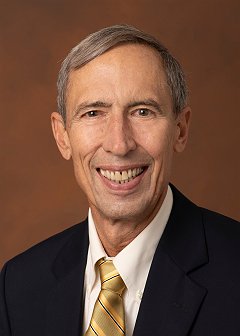 Lt. Gen. Larry D. James USAF (Ret.) Lt Gen (USAF Ret) Larry D. James is the Strategic Advisor for SmartSat Cooperative Research Centre (CRC) in Adelaide Australia and a Distinguished Professor of Space Research and Innovation at Monash University in Melbourne Australia. At SmartSat CRC he provides advocacy, technical advice, and support for SmartSat’s R&D, innovation and educational activities. At Monash he engages with senior university leadership to further space curriculum expansion and development; help build government partnerships both domestically and globally; build research collaborations and opportunities; and support indigenous student development programs. View Profile |
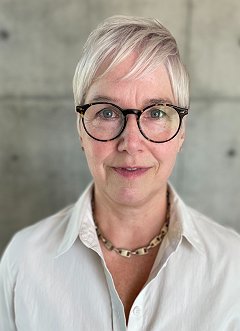 Dr. Linda Elkins-Tanton Lindy Elkins-Tanton is a planetary scientist, and the Principal Investigator of the NASA Psyche mission. On July 1, she became Director of the Space Sciences Laboratory at the University of California, Berkeley. Previously, she was an Arizona State University Regents and Foundation Professor in the School of Earth and Space Exploration, Director of the Department of Terrestrial Magnetism at the Carnegie Institution for Science, and faculty at MIT. Elkins-Tanton's research concerns the formation and evolution of rocky planets; volcanic activity and extinctions on Earth; as well as on effective teams and future-facing educational practices. Asteroid (8252) Elkins-Tanton is named for her, as is the mineral elkinstantonite. She is a member of the National Academy of Sciences, and the American Academy of Arts & Sciences. Elkins-Tanton received her B.S., M.S., and Ph.D. from MIT. |
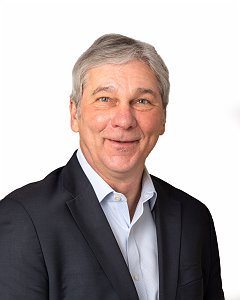 Dr. Tom Cwik Dr. Tom Cwik is Chief Technologist for NASA’s Jet Propulsion Laboratory. In this role, he provides strategic leadership for research in advanced technology and serves as the focal point for technology interactions with NASA, companies, universities, and the external research community. This includes being responsible for the management and development of NASA’s Space Technology Mission Directorate work at JPL and directing internal investments across the Lab. He is responsible for guiding the infusion of new technology into the Laboratory mission portfolio. View Profile |
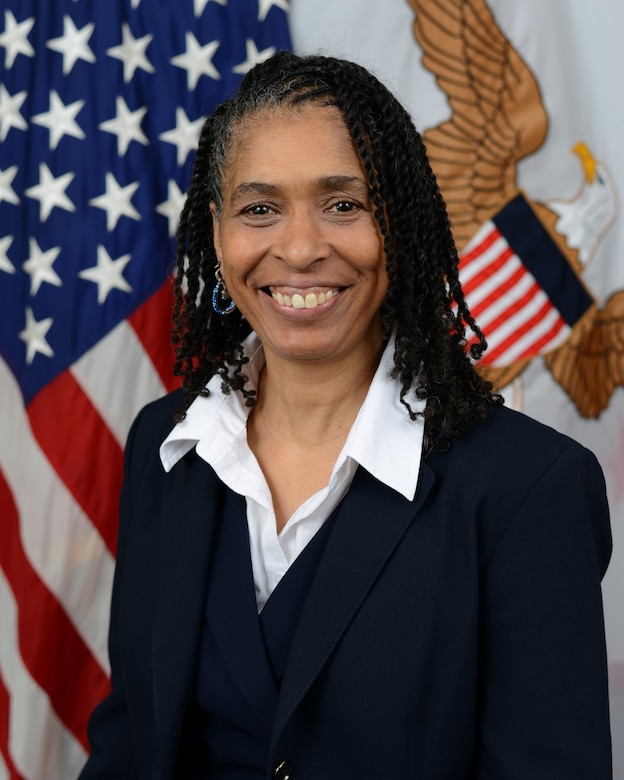 The Honorable Aprille J. Ericsson The Honorable Aprille J. Ericsson was the Assistant Secretary of Defense for Science and Technology (S&T). In this role, she directed an organization responsible for the oversight, advocacy, and policy for the Department of Defense (DoD) S&T enterprise, including S&T workforce and laboratory infrastructure, Federally Funded Research and Development Centers, and University-Affiliated Research Centers. The ASD(S&T) office oversees a broad portfolio of S&T programs, including basic research, Small Business Innovation Research/Small Business Technology Transfer (SBIR/STTR), DoD Manufacturing Technology, and nine Manufacturing Innovation Institutes. Focused emerging technology areas include: advanced materials, biotechnology, quantum science, FutureG, along with developing system capabilities for hypersonics, PNT, nuclear delivery, human and unmanned platforms. View Profile |
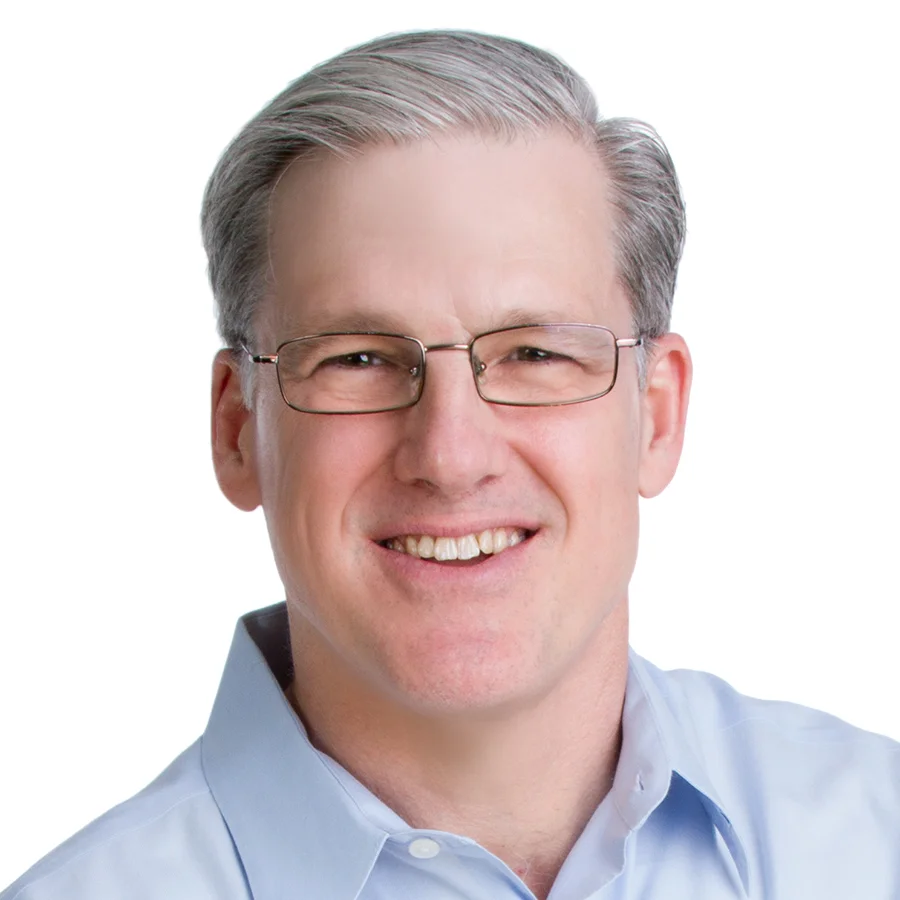 Ted Speers Ted Speers is a Technical Fellow at Microchip’s FPGA Business Unit, where he is responsible for defining its roadmap for low power, secure, reliable FPGAs and SoC FPGAs. Ted is a RISC-V leader and evangelist and has served on the Board of Directors of RISC-V International since its inception in 2016 through 2024. He joined Actel (now part of Microchip) in 1987 and held roles in process engineering and product engineering before assuming his current role in 2003. He is co-inventor on 35 U.S. patents. In his role, Ted has consistently defined the first of its kind products including the RT-SX rad-tolerant by design FPGA and the most recent example being PolarFireSoC, the first RISC-V based SoC FPGA. Prior to joining Actel, he worked at LSI Logic. Ted has a Bachelor of Science in chemical engineering from Cornell. |
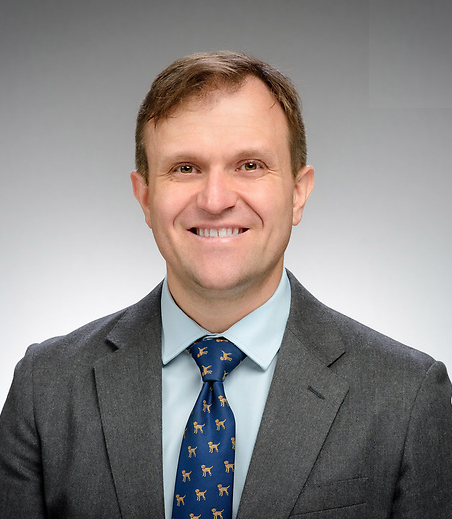 Dr. Matthew Morrison Matthew Morrison is an Associate Teaching Professor in the Department of Computer Science and Engineering at the University of Notre Dame. At Notre Dame, he conducts curriculum development in digital integrated circuit design and high-performance space computing. He promotes semiconductor education initiatives throughout the United States, including serving as a visiting professor at Howard University, on the governing board of the Center for Education of Microelectronic Designers, and as a visiting researcher with Google Custom Silicon. View Profile |
 Shey Sabripour Shey Sabripour is the Founder and CEO of CesiumAstro. Under his leadership, the company has become a global leader in space communications. Now in its ninth year of operation, CesiumAstro has grown into a successful, revenue-generating company with a team of 300+ employees across five global locations, serving commercial and U.S. national security customers. Prior to founding CesiumAstro, Shey spent 24 years at Lockheed Martin Space Systems Company, advancing from design engineer and program manager to Director of Spacecraft Design, where he led 350 engineers and scientists who designed and developed 36 geostationary satellites for commercial and military customers. From 2014 to 2016, as CTO of Firefly Space Systems (now Firefly Aerospace), he led technical development and program management for the Alpha Rocket, securing NASA and DARPA contracts. A graduate of North Dakota State University in Electrical and Electronics Engineering, Shey co-authored a spacecraft technology textbook and holds multiple U.S. patents. He is a member of the Institute of Electrical and Electronics Engineers (IEEE) and the American Institute of Aeronautics and Astronautics (AIAA). Shey proudly serves on the Executive Committee of the Texas Aerospace and Space Economy Consortium (TARSEC), where he works to promote economic growth and innovation in the aerospace industry. |
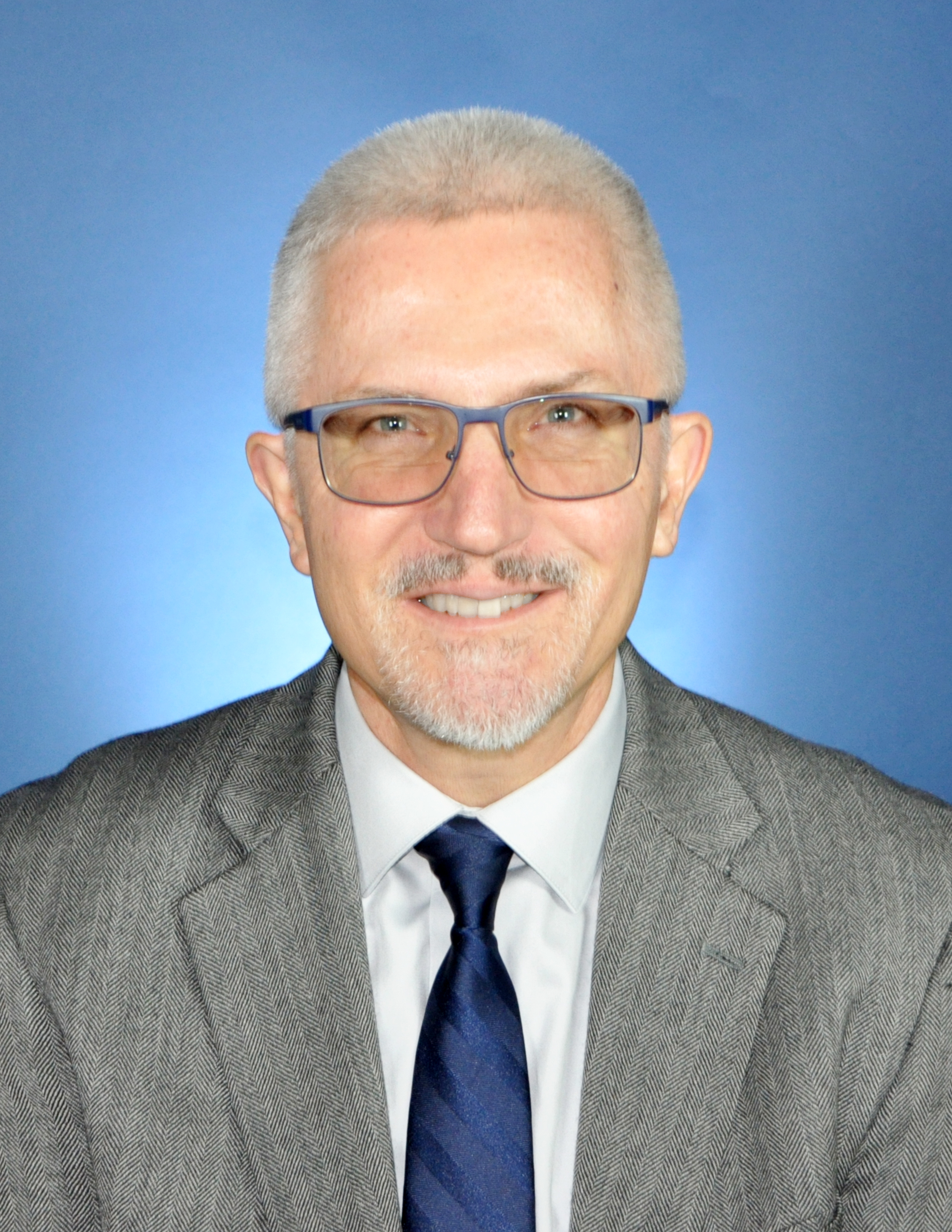 Wes Powell Wes Powell is the Principal Technologist for Avionics at NASA’s Space Technology Mission Directorate (STMD). In support of both human exploration and science missions, he develops avionics technology investment strategies across the full Technology Readiness Level (TRL) pipeline in coordination with NASA Program Executives. Specific technologies of interest include high performance spaceflight computing, distributed avionics architectures, crew audio/visual interfaces, extreme environment avionics, next generation avionics architectures, and foundational technologies. His prior experience includes ground system and flight hardware engineering, technology development, line management, and technology management at NASA’s Goddard Space Flight Center. Wes holds a B.S. degree in electrical engineering from the University of Maryland, and M.S. degrees in electrical engineering and technical management/system engineering from the Johns Hopkins University. |
6th Augmented, Virtual, and Mixed Realities Workshop: xR Technologies in Digital Engineering Environments: Call for Papers, Presentations, and/or Demos
View track page for all detailsWe are excited to invite submissions for the 6th Augmented, Virtual, and Mixed Realities Workshop: xR Technologies in Digital Engineering Environments, which will be held in conjunction with the IEEE SMC-IT/SCC from July 30 - 31, 2025, at the California Science Center in Los Angeles, CA. This workshop aims to bring together researchers, practitioners, and industry experts to explore the latest advancements and applications of extended Reality (xR) technologies within digital engineering environments, particularly in the context of space missions.
Relevant Topics
We invite submissions on, but are not limited to, the following topics:
- Survey of Current xR Tools and Technologies: Overview of existing extended Reality platforms and tools relevant to digital engineering.
- Applicability of xR Technologies to Digital Engineering in the Space Mission Lifecycle: Integration of xR in various phases of space mission formulation, planning, development, and operations.
- Challenges in Adopting xR Technology-Based Solutions: Technical, operational, and organizational hurdles in implementing xR within space mission environments.
- Expanding xR Technologies in the Digital Engineering Enterprise Beyond Digital Twins: Advanced applications of xR beyond simulation and modeling, including training, collaboration, and real-time operations.
- Pathways to Implementing xR in Secure Environments: Strategies for deploying xR technologies in environments with stringent security requirements.
- Demonstrations of xR Applications: Practical showcases of xR solutions addressing real-world digital engineering challenges in space missions.
- xR in Astronaut Training and Simulation: Use of virtual and augmented reality for training astronauts in mission tasks, extravehicular activities (EVA), emergency procedures, and habitat operations.
- Extended Reality for Aerospace Design and Testing: Utilizing xR tools for designing, prototyping, and testing aerospace components and systems, enhancing the design process through immersive visualization.
- xR Applications in Defense for Space-Based Operations: Deployment of xR technologies in defense scenarios, including space surveillance, satellite operations, and mission planning.
- xR for Moon and Mars: Using xR technology for lunar and Mars exploration, science planning, robotics operations, etc.
- HCI and UI/UX for xR for Space Applications: Designing effective user interfaces and interactions specific to xR systems used in space missions, focusing on usability and efficiency.
- xR for Space Robotics: Managing and controlling space-based robotics systems through extended reality interfaces, enabling precise and intuitive manipulation.
- xR for Space Habitat Design and Virtual Prototyping: Using xR to visualize, prototype, and iterate on space habitat structures, life support systems, and other critical infrastructure components.
- Telepresence and Remote Collaboration for Space Missions: Enabling remote experts and team members to participate in space mission operations and problem-solving through xR-based telepresence solutions.
- xR for Aerospace Applications: Using extended reality for aerospace applications more broadly, not just specifically for space.
- xR for Planetary Exploration and Surface Operations: Enhancing planetary exploration missions through xR tools that assist in navigation, sample collection, and scientific research on planetary surfaces.
Submission Guidelines
- Paper Submissions: We welcome full papers, which should adhere to the IEEE formatting guidelines, available here, and require a verbal presentation. Please submit your draft paper for review by the deadline listed below; paper acceptance notification will follow peer and program committee review. Alternatively, an abstract can be submitted in lieu of a draft paper. The final “camera-ready” paper must be submitted by the deadline listed below.
- Page Limit: Full papers should not exceed 10 pages, excluding references.
-
Publication: All accepted papers will be published in the IEEE conference proceedings, indexed with the IEEE Xplore database. Note that IEEE has a “Podium and Publish” policy for conferences, which means that no manuscript will be published in IEEE Xplore without first being presented at the conference.
-
Presentation and Demos: In addition to full papers, we welcome stand-alone presentations and demonstrations; demos that accompany a full paper are encouraged and should be described within the paper submission.
- Stand-alone demos or stand-alone presentations need their own one-page (max) submission, detailing the functionality and relevance to the workshop themes. Please include the anticipated physical space needed for the demo, utility needs (electrical, internet, etc.), duration of the demo, and how many participants you can accommodate.
- Submission Portal: Submissions should be made through the EasyChair portal. Please select the “6th Augmented, Virtual, and Mixed Realities Workshop (AR/VR)” track during submission.
Review and Presentation
- Review Process: All abstract submissions will undergo a peer-review process by the workshop’s technical program committee.
- Notification of Acceptance: Authors will be notified of the acceptance decision by May 23rd, 2025.
- Camera-Ready Submission: Final camera-ready papers are due by June 20th, 2025.
- Presentation Format: Accepted papers will be presented as posters during the workshop. A select number of outstanding submissions may be invited for spotlight presentations.
Important Dates
Fri May 9th, 2025 – Paper submission deadline- Fri May 16th, 2025 – Paper submission deadline (EXTENDED BY ONE WEEK!)
- Fri May 23rd, 2025 – Paper acceptance notification
- Fri June 20th, 2025 – Final camera-ready paper deadline
Contact Information
For any inquiries regarding the workshop, please use the contact form here.
Interoperable Autonomous Systems Workshop: Foundations for Interoperability among Space Assets: Call for Lightning Talks
View track page for all detailsThere’s been much work on autonomous systems in isolation, but less so on interaction between multiple autonomous system. In future space missions, autonomous systems are expected to be developed by multiple vendors and organizations across multiple nations. We are specifically seeking experiences and ideas on: 1) multiple autonomous system use cases, and 2) the classes of information that must be shared by autonomous systems, and 3) any other enablers of interoperable autonomy.
Authors submitting work to this track should do so by uploading an abstract to our submission system at https://easychair.org/conferences/?conf=smcitscc2025, selecting “Interoperable Autonomous Systems Workshop” as the track. There is no mandatory length for the abstract; an approximate length of between 0.5 and 2 pages is recommended. Abstracts will be peer reviewed by a committee selected by the workshop chairs.
Submissions accepted for presentation will have their abstract published in the IEEE SMC-IT/SCC proceedings (available via IEEE Xplore), as well as giving a 15-min presentation at the workshop.
Space Robotics Workshop 2025: Call for Papers to the 2nd Space Robotics Workshop
View track page for all detailsWe invite submissions on research and development at the intersection of robotics, autonomy, and space applications for the 2nd Space Robotics Workshop, which will be held in conjunction with the IEEE SMC-IT/SCC from July 28th to 29th 2025, at the California Science Center in Los Angeles, CA. Contributions should highlight innovative methods, systems, and technologies for exploration, in-space services, or science operations beyond Earth.
Relevant topics:
- Autonomous navigation and mobility for planetary and orbital environments, including terrain-relative localization, path planning, and novel locomotion systems (e.g., rovers, drones, subsurface robots).
- Manipulation in space and planetary environments, including dexterous handling, microgravity operations, and contact dynamics in ISAM or EVA contexts.
- In-space Servicing, Assembly, and Manufacturing (ISAM) and In-situ Resource Utilization (ISRU) enabled by robotic autonomy.
- AI agents for perception, decision-making, task planning, and multi-robot coordination in space environments.
- Foundation models and multimodal learning (vision-language-action) for general-purpose space robotic systems.
- Photogrammetry, Neural Radiance Fields (NeRFs), 3D Gaussian Splatting (3DGS), and other volumetric representation techniques for environment modeling and scene understanding, particularly under challenging illumination conditions.
- Human-robot teaming strategies for crewed and uncrewed missions, including shared autonomy, intent recognition, and adaptive interfaces.
- Sim-to-real transfer, domain adaptation, and policy generalization for space-deployed systems.
- High-fidelity simulation and digital twins for development, integration, testing, and mission rehearsal.
- Long-duration autonomy and adaptive learning in unstructured, dynamic, or high-latency environments.
- Autonomous surface operations, including science-driven exploration, sample collection, and real-time decision-making under resource constraints.
- Spacecraft swarms and distributed robotic systems, including satellite formation flying, multi-agent planning, and inter-agent communication.
- Space logistics, infrastructure deployment, and robotic construction, supporting scalable off-world operations.
- System integration, testing, and field validation of space robotic platforms in analog or operational environments.
- Mission concepts, technology demonstrations, and commercial initiatives accelerating the adoption of space robotics.
- Trust, verification, and validation frameworks to ensure robust, explainable, and resilient autonomous behavior.
Submission Guidelines
- Full papers can be up to 10 pages, not including references. Paper templates are available here: IEEE Templates.
- Submissions must be made through the EasyChair portal. Please select the “Space Robotics Workshop” track.
- Authors may choose between two submission options:
- Archival Track (IEEE Proceedings): Papers will be included in the official IEEE conference proceedings (indexed in IEEE Xplore). Submission Deadline: May 23rd
- Non-Archival Track: For authors who wish to present without publication, preserving eligibility for future archival venues. Submission Deadline: June 13th.
- Papers selected for IEEE publication must be presented in person to comply with IEEE’s “Podium and Publish” policy.
- Authors who opt out of IEEE publication may still present at the workshop and are encouraged to contribute to discussions and community-building.
- All submissions will be peer reviewed for quality and relevance.
- At least one author of each accepted paper must register for IEEE SMC-IT/SCC with an in-person registration and attend the workshop.
- All accepted papers will be presented as posters during the workshop. A select number of top submissions will be invited for spotlight presentations, based on reviewer feedback and program needs.
- Selected papers may be invited to appear in a special issue of a journal. More details will be shared later.
Important Dates
| Milestone | Archival Track | Non-Archival Track |
|---|---|---|
| Paper Submission deadline | May 23, 2025 | June 13, 2025 |
| Acceptance Notification | June 13, 2025 | June 20, 2025 |
| Camera-ready deadline | June 20, 2025 | July 7, 2025 |
For any questions, please feel free to reach out to:
✉️ ignacio.lopez-francos@nasa.gov
✉️ marcel.kaufmann@jpl.nasa.gov
Student Innovations in SpaceTech: Exploring Hardware & Software Advances: Call for Abstracts
View track page for all detailsAre you working on an innovative space technology project? Do you have a novel hardware or software system for space applications? We invite students and student teams to showcase their work at the Student Innovations in SpaceTech workshop, where cutting-edge student-led advancements in flight hardware, flight software, and space systems will take center stage. This workshop is an exciting opportunity to present your designs, gain valuable feedback from industry professionals, and connect with fellow students, researchers, and potential mentors.
Why Participate?
- Present Your Work – Deliver a lightning presentation on your innovative space technology project.
- Gain Experience – Participate in workshops led by industry experts, featuring cuttingedge tools and techniques in space systems engineering.
- Expand Your Network – Engage with professionals and peers in the space industry through dedicated networking events. Previous attendees have included, but are not limited to, representatives from NASA, the United States Air Force, the United States Space Force, Boeing, Blue Origin, Johns Hopkins Applied Physics Laboratory, Massachusetts Institute of Technology, the European Space Agency, Sandia National Laboratories, The Aerospace Corporation, Honeywell, Microchip Technology, AMD, Avalanche Technology, and InnoFlight.
Submission Guidelines
Interested students should submit a short abstract (max 500 words) outlining their project, including key technical innovations and contributions.
Abstract Submission Deadline: May 9, 2025
Presentation Submission Deadline: June 27, 2025
Verification and Validation of Multi-Core System Architectures: Call for Participation
View track page for all detailsSummary
The “Verification and Validation of Multi-Core System Architectures” Workshop is a one-day in-person seminar within the 2025 IEEE Space Computing Conference(SCC). The workshop format will include invited presentation and an interactive challenge problem to support discussion amongst audience members.
This year we are fortunate to have two distinguished speakers. Dr Samuel R Thompson from Rapita systems who is grappling with the difficulties of assuring safety-critical software implemented in multicore systems that must conform to guidelines and standards used in aerospace. Modern processors allow for more behaviors than traditional sequential consistency by allowing reordering of instructions and relaxing store atomicity. In order to understand and verify the behavior of software running on these processors, one needs a precise understanding of the processor’s memory model. These models are complex and usually poorly documented. Dr. Jade Alglave who leads a team at Arm will tell us about her work on providing precise and both formal definition of the behavior of Arm’s memory model thus improving our ability to verify programs.
Speakers
Speaker: Dr Samuel R Thompson, Multicore Engineering Team Lead, Rapita Systems
Title: Addressing Multicore Interference in Safety- and Mission-Critical Computers
Abstract
—
Multicore interference can present a significant challenge for computers hosting critical functionality, by allowing independent software executing on different processing cores to affect each other’s timing properties. In the worst case, this interference can cause deadline misses and functional failures. Therefore, it is of great importance to understand (and bound) the impact that multicore interference can have on a given platform. We discuss some examples of both simple and complex interference channels in space-relevant multicore hardware platforms and present a tooling solution that can be used to support the analysis of interference channels by using a combination of targeted interference generators and measurement tooling.
Dr. Jade Alglave, FREng. ARM and University College London
Title: On formal specifications at Arm
Abstract
The Arm Architecture Formal Team looks after the formalization of a number of areas of the Arm Architecture. Historically, the team has looked after the Concurrency Model, which determines which value a Load instruction is Architecturally Allowed to see. To do that, we develop, maintain and enhance a number of tools which allow us to propose, execute, test and amend formalizations of the prose in the Arm Architecture Reference Manual (Arm ARM). We discuss our proposals with stakeholders and ratify them, after which a (partially automated) transliteration of the formalization lands back into the Arm ARM. The current scope of the model includes some aspects of virtual memory and instruction fetch, and we work assiduously to expand the scope to the entirety of the Architecture.
More recently, the team has looked into defining and formalizing the Arm Architecture Specification Language (ASL), which is used to describe the behavior of the instructions of the Arm Instruction Set Architecture (ISA). Originally this language was a pseudocode without well defined syntax and semantics, and the team has provided a formal definition of both, as well as a reference interpreter.
Dr. Alglave will give an overview of her work on both topics, as well as some considerations about the accessibility of specifications, whether formal or not.
Pointers
The formal concurrency model is written in a domain-specific language called cat 1 , which can be interpreted in a tool called herd7 2 . We use the diy7 tool to generate interesting concurrency tests 3, which can be run using the litmus tool 4. The formal definition of ASL can be found at [5[, and the reference interpreter at 6. Various papers show the evolution of the formal Arm concurrency model scope, e.g. 7 and 8.
Schedule
TBD